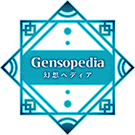Sindarin: Difference between revisions
More languages
More actions
m Text replacement - "Genso Suikoden" to "Gensosuikoden" |
mNo edit summary |
||
| (3 intermediate revisions by the same user not shown) | |||
| Line 3: | Line 3: | ||
==Overview== | ==Overview== | ||
===Sindar script=== | ===Sindar script=== | ||
The [[Sindar]] used phonetic characters in their written language, about which a certain amount is known. Although not understood by more than a few people, many research institutes and some private individuals can decipher Sindarin text to some extent. Relatively studious persons, such as [[Jowy Atreides]] and [[Alex]], could at least | The [[Sindar]] used phonetic characters in their written language, about which a certain amount is known. Although not understood by more than a few people, many research institutes and some private individuals can decipher Sindarin text to some extent. Relatively studious persons, such as [[Jowy Atreides]] and [[Alex]], could at least recognize the ancient text on sight. | ||
Sindarin writing is, not surprisingly, found in ancient Sindar texts and ruins around the world. It can also be found on one of the emblems of the [[Holy Kingdom of Harmonia]]. | Sindarin writing is, not surprisingly, found in ancient Sindar texts and ruins around the world. It can also be found on one of the emblems of the [[Holy Kingdom of Harmonia]]. | ||
===Spoken Sindarin=== | ===Spoken Sindarin=== | ||
Compared to being able to read, or at least | Compared to being able to read, or at least recognize, Sindar script, the ability to speak Sindar appears to be a much rarer talent. So far, only those exceptionally skilled at investigating the Sindar, such as [[Sarah (Suikoden III)|Sarah]] have been shown able to speak the Sindar tongue. | ||
==Trivia== | ==Trivia== | ||
* Sindarin writing appears at first to be a true foreign language but it is actually a substitution cipher and can be easily translated. Sindarin writing gives a counterpart for each of the 26 letters of the Latin alphabet. | * Sindarin writing appears at first to be a true foreign language, but it is actually a substitution cipher and can be easily translated. Sindarin writing gives a counterpart for each of the 26 letters of the Latin alphabet. | ||
==References== | ==References== | ||
# [[ | # [[Genso Suikoden Encyclopaedia]] (ISBN 4-575-16297-3), page 144 | ||
{{ | {{GS02}} {{Short description|Written and verbal language of the Sindar}} | ||
}} | |||
{{ | |||
[[de:{{PAGENAME}}]] | [[de:{{PAGENAME}}]] | ||
[[Category:Suikoden II]] [[Category:Suikoden III]] [[Category:Languages and scripts]] | [[Category:Suikoden II]] [[Category:Suikoden III]] [[Category:Languages and scripts]] | ||
Revision as of 11:15, 23 January 2023
Sindarin (シンダル文字, Shindaru moji, Sindar letters) is the term given to the written and verbal language of the Sindar. As the language of the lost people, Sindarin is usually only known to those with an interest in the study of the ancient people.
Overview
Sindar script
The Sindar used phonetic characters in their written language, about which a certain amount is known. Although not understood by more than a few people, many research institutes and some private individuals can decipher Sindarin text to some extent. Relatively studious persons, such as Jowy Atreides and Alex, could at least recognize the ancient text on sight.
Sindarin writing is, not surprisingly, found in ancient Sindar texts and ruins around the world. It can also be found on one of the emblems of the Holy Kingdom of Harmonia.
Spoken Sindarin
Compared to being able to read, or at least recognize, Sindar script, the ability to speak Sindar appears to be a much rarer talent. So far, only those exceptionally skilled at investigating the Sindar, such as Sarah have been shown able to speak the Sindar tongue.
Trivia
- Sindarin writing appears at first to be a true foreign language, but it is actually a substitution cipher and can be easily translated. Sindarin writing gives a counterpart for each of the 26 letters of the Latin alphabet.
References
- Genso Suikoden Encyclopaedia (ISBN 4-575-16297-3), page 144
